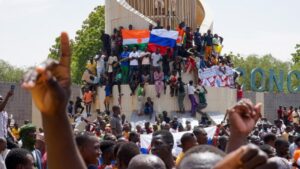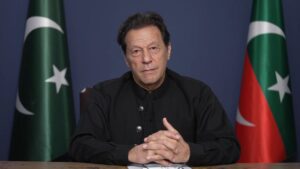
The completion of the December 7 general elections which has seen incumbent President Nana Akufo-Addo re-elected for a second four year term in office, was supposed to be a cause for celebration for the business community which has tacitly supported the macro-economic policies of the incumbent administration , if not the government itself. But the political log jam confronting the country following the refusal of the opposition National Democratic Congress to accept the result, plus the real prospect of a hung Parliament is taking a lot of the shine off the elections. All this however will not have a major impact how their operating environment can be expected to evolve in 2021.
To be sure, the international business and investment community is happy that the incumbent administration will stay in office – although their local counterparts are more divided in their enthusiasm levels.
International investors with an interest in Ghana seem to have more confidence in the Akufo-Addo administration than one that would have been put together by John Dramani Mahama in the event that he had won the election.
Importantly Fitch, one of the three credit ratings agencies that track’s Ghana’s sovereign credit worthiness, has in collaboration with JP Morgan Emerging Market Bond Index asserted that some sub Saharan African bond issuers including Ghana will be able to issue new tranches of Eurobonds shortly. Fitch claims that the international investment community will be enthused by the re-election of President Akufo-Addo because they have confidence in his macro-economic management.
Similar positive sentiments have emanated from several financial analysts in major financial intermediation and investment banking institutions around the world.
For instance, Simon Quijano-Evans, chief economist at London-based Gemcorp Capital LLP says the markets will probably award the incumbent government the benefit of the doubt, given their track record of recent years. He asserts that: “The current government’s fiscal plan makes sense as a baseline scenario and markets will probably judge performance on a quarterly basis. Securing credibility in the fiscal space will help lower interest costs” to support growth and job creation.
Similarly, Kevin Daly, portfolio manager at London-based Aberdeen Standard Investments predicts that all issues related to debt, including the need to increase tax revenue, “are likely to be addressed quicker by the incumbent party as they can hit the ground running.” He enthuses that the government’s deficit plan for 2021 is “positive.”
Mark Bohlund, senior credit analyst at REDD Intelligence notes that “Most of the fiscal slippage occurred during the NDC’s time in office.”
Nana Adu Ampofo and Kobi Annan, analysts at U.K. and Ghana-based Songhai Advisory says that “The NPP deserves credit for the economic successes maintained between 2017 and 2020 pre-Covid-19,” Expressing relief at the out turn of the election he notes that reorganization of debt on the heels of an NDC victory would introduce waste “at a time when the country can ill afford it.”
However they all acknowledge that the President Akufo-Addo administration will have a huge task ahead of it during its second term.
So do their local counterparts who however are not quite as confident as to the incumbent’s administration to take them along in its efforts at accelerating Ghana’s economic growth and development.
There are two reasons for the difference in enthusiasm between the international business community and the local business community, one of which is obviously political but the other is economic.
Of course, the local business community comprises supporters of both major political parties – the victorious New Patriotic Party and the defeated National Democratic Congress – and in a country where political patronage by an incumbent government which is far and away the biggest spender, is crucial, supporters of the NDC are no doubt disheartened that their easiest way to increased business revenues and profits has been shut in their faces.
But there is also an economic reason: the incumbent government is more inclined to do business with major international corporations and portfolio investors than their recently defeated political opponents who are more dedicated to local content and participation in the workings of the economy. The returning administration traditionally prefers a strategy of local enterprises partnering international businesses that are laden with capital, technology and access to global markets – rather than promoting local business to take up market share from their foreign counterparts – and such local partnership roles are not open to all and sundry.
Actually this is in part why the international business community is elated that the incumbent government has been re-elected. However the other reason for this is more crucial: attracting the international trade and investment community requires macro-economic stability above all other considerations and this will be the priority for the President Nana Akufo Addo administration next year. Indeed the President himself has affirmed that the restoration of macro-economic stability and its subsequent maintenance will be his biggest economic priority during his second term in office.
In 2021 in particular this means a return to sustainable fiscal deficits as quickly as possible. It is instructive that while the NDC had been targeting a double digit fiscal deficit for its first year in office had it won the election, because of the peculiar fiscal circumstances imposed by COVID 19 this year, the incumbent government has already announced a fiscal deficit target of 8.6 percent for 2021 as the first stage of a three year road map towards returning the deficit to under 5.0 percent as required by the (currently suspended) fiscal responsibility act.
Bringing the deficit down from 11.8 percent expected as the 2020 outcome to 8.6 percent will require major fiscal consolidation but it has the advantage of already being in power so it can avoid significant political transition costs. Besides, since it is starting a second term, it will not see the need for expansive public spending to reassure the electorate that it made the right choice on December 7.
Source: Goldstree Business





